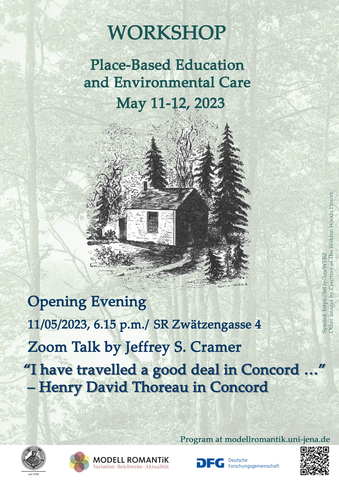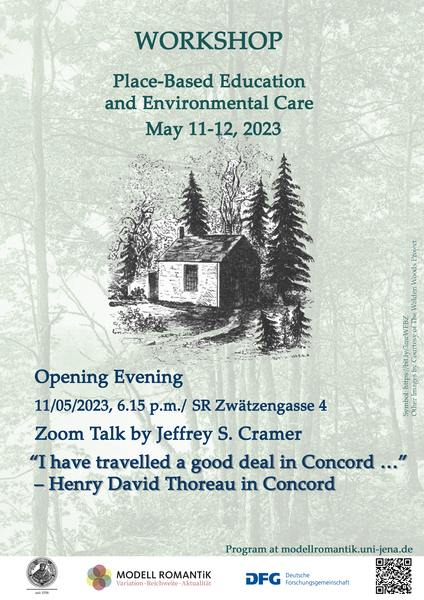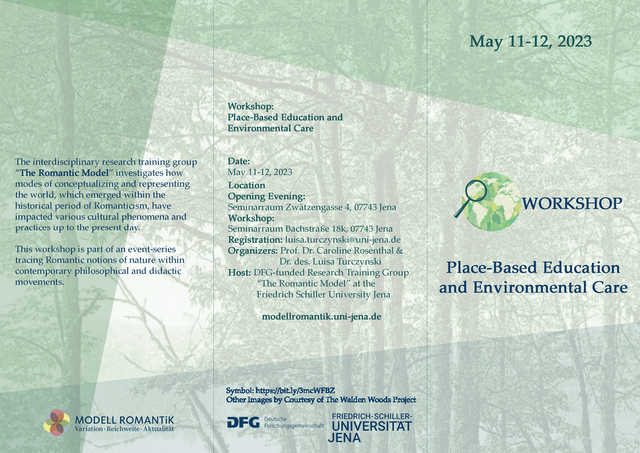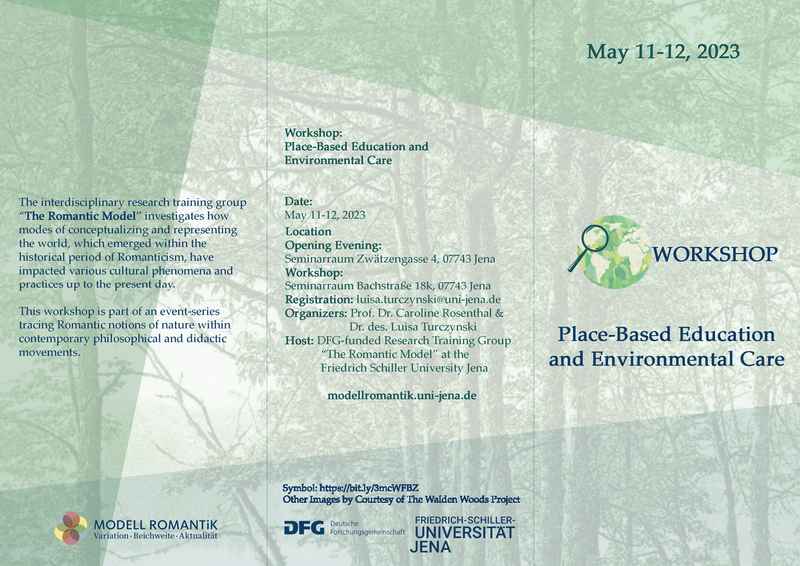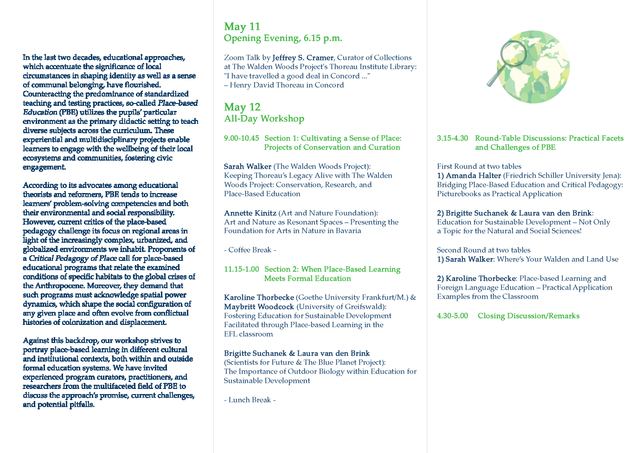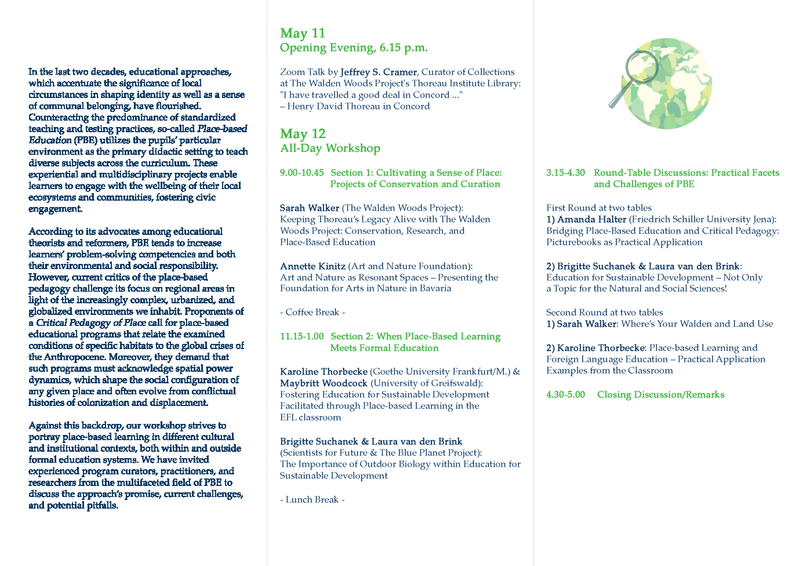Blog
Place-Based Education and Environmental Care
In the last two decades, educational approaches, which accentuate the significance of local circumstances in shaping identity as well as a sense of communal belonging, have flourished. Counteracting the predominance of standardized teaching and testing practices, so-called Place-based Education (PBE) utilizes the pupils’ particular environment as the primary didactic setting to teach diverse subjects across the curriculum. These experiential and multidisciplinary projects enable learners to engage with the wellbeing of their local ecosystems and communities, fostering civic engagement.
According to its advocates among educational theorists and reformers, PBE tends to increase learners’ problem-solving competencies and both their environmental and social responsibility. However, current critics of the place-based pedagogy challenge its focus on regional areas in light of the increasingly complex, urbanized, and globalized environments we inhabit. Proponents of a Critical Pedagogy of Place call for place-based educational programs that relate the examined conditions of specific habitats to the global crises of the Anthropocene. Moreover, they demand that such programs must acknowledge spatial power dynamics, which shape the social configuration of any given place and often evolve from conflictual histories of colonization and displacement.
Against this backdrop, our workshop strives to portray place-based learning in different cultural and institutional contexts, both within and outside formal education systems. We have invited experienced program curators, practitioners, and researchers from the multifaceted field of PBE to discuss the approach’s promise, current challenges, and potential pitfalls.
Workshop organization and moderation:
Prof. Dr. Caroline Rosenthal, head of the Department for English and American Studies, and Dr. des. Luisa Turczynski, Post-Doc at the DFG-funded research training group “The Romantic Model”, both at the Friedrich-Schiller-University of Jena
The interdisciplinary research training group “The Romantic Model” investigates how modes of conceptualizing and representing the world, which emerged within the historical period of Romanticism, have impacted various cultural phenomena and practices up to the present day. This workshop is part of an event-series tracing Romantic notions of nature within contemporary philosophical and didactic movements.
Programme
Thursday, 11.05.23, 6.15 p.m. | Seminarraum Zwätzengasse 4
Opening Evening
Zoom Talk by Jeffrey S. Cramer (Curator of Collections at The Walden Woods Project's Thoreau Institute Library):
"I have travelled a good deal in Concord ..." – Henry David Thoreau in Concord
Zoom-Meeting beitreten: https://uni-jena-de.zoom.us/j/66910592939 (Meeting-ID: 669 1059 2939, Kenncode: 755380)
Friday, 12.05.23, 9.00 a.m.-5.00 p.m. | Seminarraum Bachstraße 18k
9.00-10.45 Section 1: Cultivating a Sense of Place: Projects of Conservation and Curation
Sarah Walker (The Walden Woods Project): Keeping Thoreau’s Legacy Alive with The Walden Woods Project: Conservation, Research, and Place-Based Education
Annette Kinitz (Art and Nature Foundation): Art and Nature as Resonant Spaces – Presenting the Foundation for Arts in Nature in Bavaria
- Coffee Break -
11.15-1.00 Section 2: When Place-Based Learning Meets Formal Education
Karoline Thorbecke (University of Frankfurt) & Maybritt Woodcock (University of Greifswald): Fostering Education for Sustainable Development Facilitated through Place-based Learning in the EFL classroom (hybrid format)
Brigitte Suchanek & Laura van den Brink (Scientists for Future & The Blue Planet Project): The Importance of Outdoor Biology within Education for Sustainable Development
- Lunch Break -
3.15-4.30 Round-Table Discussions: Practical Facets and Challenges of PBE
3.15-3.45 First Round at two tables
1) Amanda Halter (University of Jena): Bridging Place-Based Education and Critical Pedagogy: Picturebooks as Practical Application
2) Brigitte Suchanek & Laura van den Brink: Education for Sustainable Development – Not Only a Topic for the Natural and Social Sciences!
4.00-4.30 Second Round at two tables
1) Sarah Walker: Where’s Your Walden and Land Use
2) Karoline Thorbecke: Place-based Learning and Foreign Language Education – Practical Application Examples from the Classroom
4.30-5.00 Closing Discussion/Remarks
